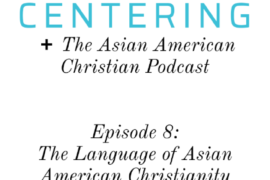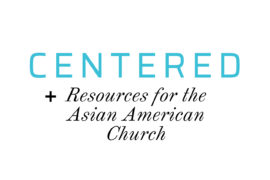
A few years ago, as Black Lives Matter and the 2016 election ushered in national waves of lament and polarization, my husband and I were feeling an ever-increasing difficulty in remaining at our majority white church. It didn’t help that our congregation had spent decades without women elders. My personal dissatisfaction and disillusionment with the church had been growing.
My convictions – born out of studying Scripture, seminary training, and the encouragement I had received to lead as an adopted Korean American woman – all contributed to a sense of discontentment for church life that was anything other than fully empowering and inclusive of women at every level. The birth of my daughter, Junia, only punctuated the urgency I felt to be in a church that cultivated and embodied woman in leadership.
My own internalized bias, or hopelessness, had gotten the better of me…
So it was a surprise when I received the letter in the mail. I re-read it a few times, thinking I was perhaps being asked to consider being part of the Nominating Committee to choose future elders and deacons. My own internalized bias, or hopelessness, had gotten the better of me. I wasn’t being asked to help choose the next elder, but to contemplate being one.
If elected, I would be the first woman elder in twenty years, the first woman of color ever, serving among a Session of seventeen other men, 90% of them white males. It was easy to think of reasons why I shouldn’t stand. Could I earnestly pursue friendship and partnership with others who believed Scripture disqualifies me from being at the table? Did I have the energy and courage to bring my full self, as an adopted woman of color, into a room teeming with white majority culture?
…a bylaw had made it almost mathematically impossible for a woman to get elected.
I thought back to the anger and defeat I felt when a woman in our church boldly stood for election a few years before me and lost because of a bylaw that made it almost mathematically impossible for a woman to get elected. Then I remembered the hopefulness I felt seeing good friends and elders successfully advocate for an amendment to that very bylaw.
As I prayed, I began asking: could it be that God had wired me for this calling? My adoption gives me a familiarity with and love for the white community. My Korean roots and ethnic identity journey give me a deep sense of conviction in the power of representation. I also still had a deep love for and commitment to the church.
I am discovering something beautiful in the everyday, unglamorous resolve to lead in discomfort…
With that, I stepped into the election process and, a year ago, was ordained as elder. It probably comes as no surprise that it has been the most stretching context I have been in. However, the small gestures of hospitality and friendship my brothers have extended to me in this first year have given me hope that we can find unity in our differences as we lead together. In a time where it often feels like friendship and collaboration necessitate total alignment, I am discovering something beautiful in the everyday, unglamorous resolve to lead in discomfort and embrace my seat at the table.



44 Comments
Pingback: jazz music meaning
Pingback: jazz coffee
Pingback: smooth jazz
Pingback: Calculix
Pingback: วิธีแทงบอลแฮนดิแคป
Pingback: dark168
Pingback: พอต ราคาส่ง
Pingback: Iraq
Pingback: virtual office for rent
Pingback: Kevin
Pingback: ปีเตอร์แพนรีสอร์ท เกาะกูด
Pingback: รับทำบัญชี ภูเก็ต
Pingback: lion breath carts review
Pingback: ทางเข้าpg
Pingback: rondreis gambia senegal
Pingback: lucabet
Pingback: ทดลองเล่นสล็อต pg
Pingback: เช่าห้องเก็บของ
Pingback: Massage
Pingback: LSM99PG มีอะไรให้เล่นบ้าง
Pingback: เซรั่มรักษาผมบาง
Pingback: สกรีนแก้ว
Pingback: ไฟสนามกีฬา
Pingback: สรุปภาพรวมเว็บ หวยมาวินเบท ดีไหม ?
Pingback: sagame
Pingback: couples massage
Pingback: UOD
Pingback: 789bet
Pingback: สโบเบ็ต ทางเข้าแทงบอลที่ดีที่สุด
Pingback: mostbet aplikace
Pingback: Plinko
Pingback: hit789
Pingback: pgslot168
Pingback: ยาตราใบห่อ
Pingback: Julie
Pingback: Christopher
Pingback: รับผลิตสปริง
Pingback: freshbet
Pingback: บริการส่ง SMS
Pingback: pc online shopping
Pingback: massage outcall Bangkok girls
Pingback: นำเข้าสินค้าจากจีน
Pingback: book fo ra online casino
Pingback: EV Charger